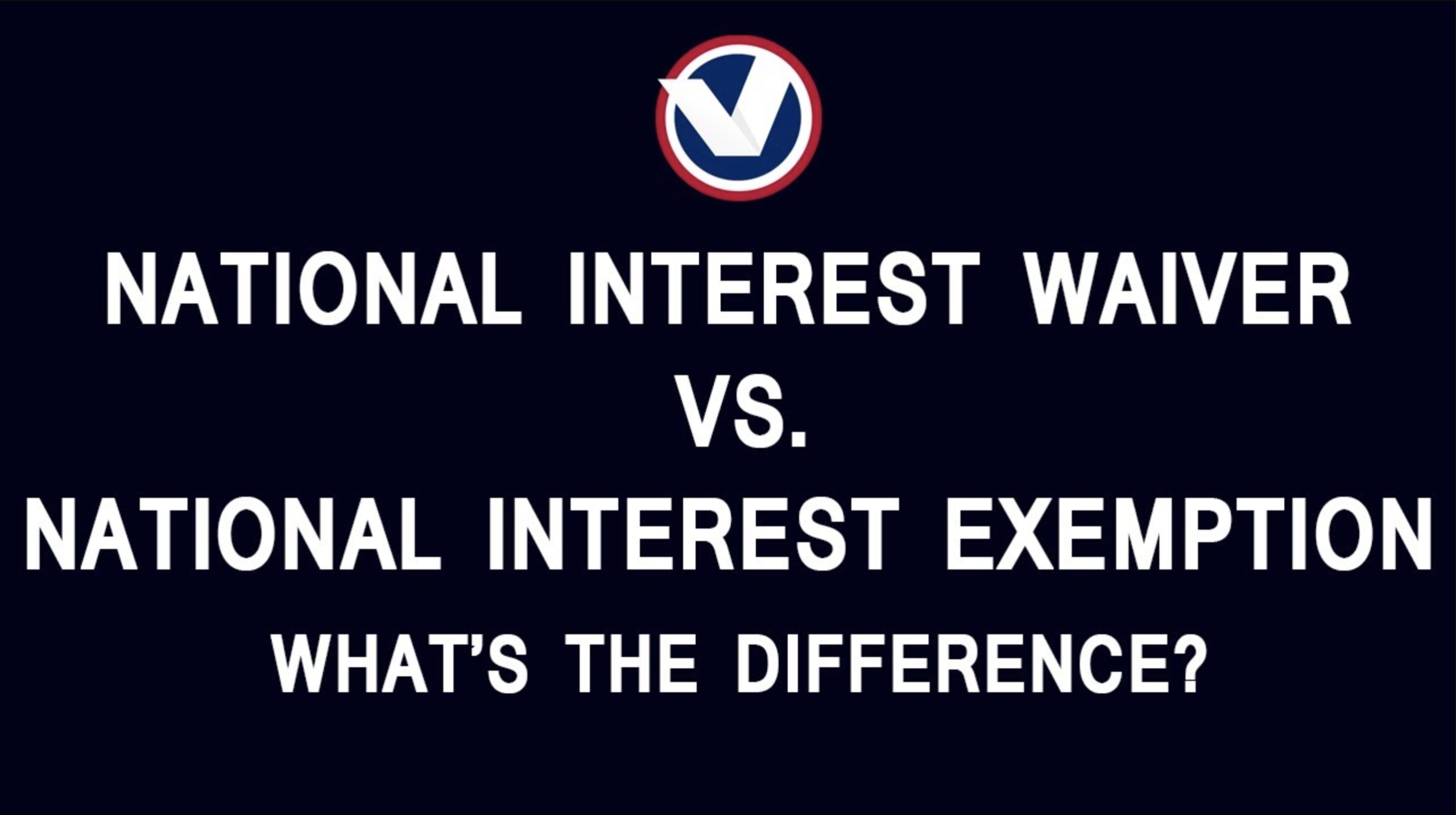There is a vast difference between a National Interest Exemption (NIE) and a National Interest Waiver (NIW). An NIE grants the holder entry to the U.S. while travel bans are in effect. In contrast, a NIW is a method of obtaining an employment-based EB-2 visa without an employer.
Here we explore the qualifications and criteria for each.
Who Qualifies for a National Interest Exemption?
Select business travelers, investors, treaty traders, academics, students, and journalists from the Schengen Area, United Kingdom and Ireland can qualify for an NIE. Qualified travelers applying for or have valid visas or ESTA authorization may travel to the United States even as the proclamation remains in effect.
Students with valid F-1 or M-1 visas from the Schengen Area, U.K. and Ireland don't need to contact an embassy or consulate to seek an NIE. However, students applying for new F-1 or M-1 visas should check the status of visa services at the nearest embassy or consulate. Applicants found to qualify for an F-1 or M-1 visa will automatically be considered for an NIE.
Business travelers, investors, academics, J-1 students, journalists, and treaty traders who have or are applying for a visa may qualify for a National Interest Exception. If an NIE is approved, they may travel on either a valid visa or ESTA authorization, as appropriate.
Entering the United States for humanitarian efforts, public health response, and national security can also qualify for an NIE.
National security can mean financial hardship to an employer. It is essential to show that the beneficiary cannot adequately work remotely and provide evidence of how it impacts the petitioning company.
How to Qualify for a National Interest Waiver (NIW)
NIWs waive the PERM application or labor certification process under the EB-2 category. This allows an EB-2 applicant to obtain an employment-based green card without an employer. To do this, you have to prove National Interest.
Substantial merit and national importance are ways of proving national interest. The endeavor has to be significant and impactful. However, national importance does not require a national scope.
Three Prongs to Showing National Importance
- The beneficiary needs to give statements about what they are doing and how it makes a difference. Things like business plans and proof of concept to opening a business and producing goods and services can qualify.
- The applicant being well-positioned also makes for a stronger case. For instance, a CEO or a higher-ranking person having an impactful role in the company demonstrates their importance. Proof can be education, skills, knowledge, and a record of success in related efforts.
- Show proof that waiving the labor certification is more beneficial to the national interest. For instance, when the beneficiary owns the company they cannot complete the labor certification process but create jobs for Americans.
Watch the video below for all the details on the difference between National Interest Waiver & National Interest Exemption.

